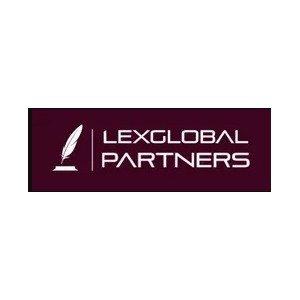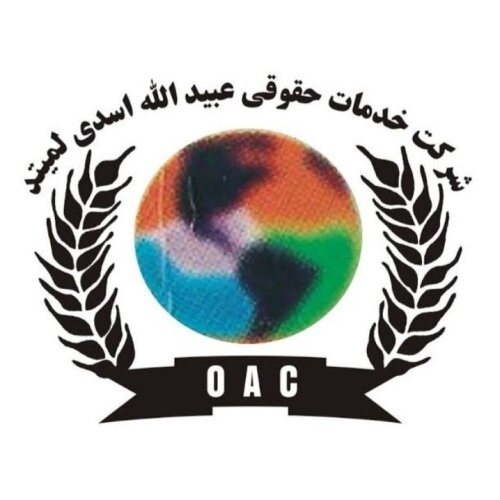Best Antitrust Litigation Lawyers in Kabul
Share your needs with us, get contacted by law firms.
Free. Takes 2 min.
List of the best lawyers in Kabul, Afghanistan
About Antitrust Litigation Law in Kabul, Afghanistan
Antitrust litigation in Kabul, Afghanistan, focuses on addressing and resolving disputes related to anti-competitive practices, abuse of market power, and unfair competition among businesses. Afghanistan, as a growing market economy, seeks to foster fair competition and open markets. Therefore, laws exist to regulate monopolistic behavior, prevent cartels, and encourage transparent business conduct. The aim of antitrust laws in Kabul is to protect consumers, ensure equal opportunities for businesses, and promote economic growth by discouraging unfair restraints on competition.
Why You May Need a Lawyer
There are various situations in which individuals or businesses in Kabul may require legal assistance in antitrust litigation. Common scenarios include:
- Your business is accused of engaging in monopolistic or anti-competitive practices.
- You suspect a competitor or larger company is unfairly limiting your access to the market.
- You have experienced price fixing, bid rigging, or market allocation schemes impacting your business or livelihood.
- You need to respond to enforcement actions or investigations from regulatory agencies.
- You are entering into mergers or acquisitions that may trigger antitrust scrutiny.
- You want to ensure your business contracts do not violate local competition regulations.
Legal guidance in these circumstances is crucial due to the complexity of antitrust laws and the potential consequences, such as heavy penalties, financial losses, or restrictions on business activity.
Local Laws Overview
Afghanistan's primary legislation on antitrust matters is the "Law on the Promotion and Protection of Competition," which provides the framework for regulating competition and preventing monopolistic behavior. Key elements relevant to antitrust litigation in Kabul include:
- Monopoly Regulation: Prohibits abuse of market dominance, unfair pricing, and exclusionary practices by dominant firms.
- Agreements in Restraint of Trade: Outlaws agreements between businesses that restrain trade, such as cartels, collusion, and price fixing.
- Merger Control: Requires certain mergers and acquisitions to be reviewed to prevent the creation of dominant market players that could harm competition.
- Investigative Powers: Grants regulatory authorities the power to investigate businesses suspected of violating antitrust laws.
- Penalties and Sanctions: Businesses found guilty of antitrust violations may face significant penalties, orders to cease unlawful conduct, and, in some circumstances, criminal liability.
The Afghanistan Competition Authority (ACA) and the Ministry of Commerce and Industries play key roles in the enforcement of these laws within Kabul and throughout the country.
Frequently Asked Questions
What is antitrust litigation?
Antitrust litigation involves legal disputes related to allegations of anti-competitive practices, such as monopolies, cartels, abuse of dominance, or restrictive agreements between businesses.
Who enforces antitrust laws in Kabul, Afghanistan?
The Afghanistan Competition Authority, in coordination with the Ministry of Commerce and Industries, is responsible for enforcement and oversight of antitrust legislation in Kabul.
Can an individual file an antitrust lawsuit?
Yes, individuals and businesses harmed by anti-competitive conduct can file complaints or seek legal remedies through the courts or the relevant regulatory authority.
What are common examples of anti-competitive behavior?
Common examples include price fixing, bid rigging, market sharing agreements, abuse of dominant position, and exclusionary tactics designed to harm competitors.
Are there penalties for violating antitrust laws?
Yes. Penalties can include fines, business restrictions, and in severe cases, criminal charges against responsible individuals or companies.
How do mergers and acquisitions relate to antitrust law?
Mergers or acquisitions that may reduce competition or create dominant market positions are subject to review and may be blocked or require conditions to be approved.
What should I do if my business is accused of an antitrust violation?
You should consult with a qualified lawyer who can help assess your situation, respond to the allegations, and represent your interests before authorities or in court.
How can I ensure my business complies with antitrust laws?
Work with legal professionals to review your business practices and contracts regularly to make sure they align with local competition laws and guidelines.
What remedies are available if I suffer from anti-competitive conduct?
Victims may seek compensation for damages, injunctions to stop harmful conduct, and in some cases, punitive measures against the offender.
How long does antitrust litigation take?
The duration of antitrust cases varies depending on complexity, the amount of evidence, and the procedures of regulatory bodies or courts, but these cases are often lengthy.
Additional Resources
If you need further information or assistance regarding antitrust matters in Kabul, consider reaching out to the following organizations and resources:
- Afghanistan Competition Authority (ACA)
- Ministry of Commerce and Industries
- Afghanistan Chamber of Commerce and Investment
- Legal aid organizations specializing in commercial and corporate law
- Private law firms with experience in antitrust and competition law
Many of these institutions provide information, mediation, and support for businesses and individuals affected by anti-competitive practices.
Next Steps
If you believe you are involved in or impacted by an antitrust issue in Kabul, Afghanistan, the following steps are recommended:
- Document all relevant facts, communications, and evidence related to your case.
- Reach out to a lawyer experienced in competition and antitrust law for a professional assessment.
- Contact the Afghanistan Competition Authority for guidance or to file a formal complaint.
- Stay informed about your legal rights and obligations under Afghan competition laws.
- Engage proactively with regulatory authorities if you receive a request or notification regarding an investigation.
Being proactive and consulting with qualified legal professionals will help protect your interests and ensure compliance with the law when involved in antitrust matters in Kabul, Afghanistan.
Lawzana helps you find the best lawyers and law firms in Kabul through a curated and pre-screened list of qualified legal professionals. Our platform offers rankings and detailed profiles of attorneys and law firms, allowing you to compare based on practice areas, including Antitrust Litigation, experience, and client feedback.
Each profile includes a description of the firm's areas of practice, client reviews, team members and partners, year of establishment, spoken languages, office locations, contact information, social media presence, and any published articles or resources. Most firms on our platform speak English and are experienced in both local and international legal matters.
Get a quote from top-rated law firms in Kabul, Afghanistan — quickly, securely, and without unnecessary hassle.
Disclaimer:
The information provided on this page is for general informational purposes only and does not constitute legal advice. While we strive to ensure the accuracy and relevance of the content, legal information may change over time, and interpretations of the law can vary. You should always consult with a qualified legal professional for advice specific to your situation.
We disclaim all liability for actions taken or not taken based on the content of this page. If you believe any information is incorrect or outdated, please contact us, and we will review and update it where appropriate.













